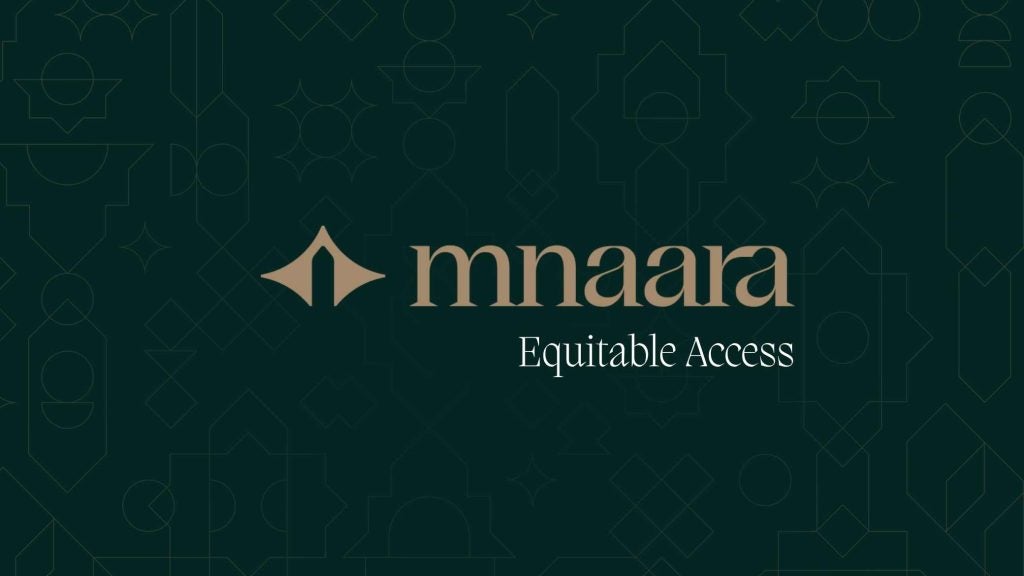Co-investment programmes will continue to grow in popularity but warns that investors face significant downside risk if they are poorly executed, according to Altius Associates’ annual survey: ‘The Key Challenges facing the private equity sector in 2014’.
In Europe, the report cites one of the key challenges as how to maintain investment and pricing discipline whilst deploying a significant amount of dry powder.
Turning to Asia, Altius counters the prevailing perception that cash distributions are continuing to slow down with managers struggling to return capital and recommends investors continue to grow their programmes in a disciplined and highly selective way as conditions for investing seem generally better compared to anytime over the past few years.
In Emerging markets, Altius highlights that while investors have been increasing their allocations over the last 10 years exits still lag far behind and this is reflected in a significantly lower DPI (Distributions to Paid-In) ratio than the US and Europe.
Altius identifies a key reason for this is the focus on growth capital investments, which generally take longer to create value than buyouts. In order for LPs to generate more liquidity out of their emerging markets exposure, Altius suggests they complement their portfolio with other types of strategies including secondaries and distressed funds.
Altius urges caution – and a significant underweighting – for real assets in emerging markets and predicts that 2014 will see the bloom finally fall from the rose of renewable energy, a ‘crowd favourite’ among many investors.
How well do you really know your competitors?
Access the most comprehensive Company Profiles on the market, powered by GlobalData. Save hours of research. Gain competitive edge.

Thank you!
Your download email will arrive shortly
Not ready to buy yet? Download a free sample
We are confident about the unique quality of our Company Profiles. However, we want you to make the most beneficial decision for your business, so we offer a free sample that you can download by submitting the below form
By GlobalDataWhile 2013 saw a slowdown in the secondary market, Altius predicts a more robust market in the coming year, driven by a recovery in primary fundraising, changing regulations and a substantial opportunity in fund restructurings and secondary direct transactions.
Altius highlights the growing challenge of providing advice in an environment where overall fees and costs are often considered more important than investment returns. The report explains how the increasing focus of governments, and therefore trustees, on cost savings is driving decision-making not only on the advisers to use, the funds to invest in but also the types of investment to make.
Altius provides more detail below on each of the challenges:
Co-investment integration
While co-investment is here to stay and some LPs have found it to be additive to their private equity portfolio performance, starting and executing a programme can present significant challenges, not least in terms of having the appropriate structure in place to be able to respond to a short term opportunity.
Without making structural adaptations many LPs can face difficulties in evaluating an investment relative to their portfolio, performing due diligence, preparing a recommendation and gaining approval from their investment committee within a matter of weeks and sometimes less.
William Charlton, head of Americas Investment at Altius, said: "Even if structural issues are addressed, two of the more difficult challenges faced in co-investing are those of adverse selection and aligning incentives. Our research shows that missing out on just a few of the better deals can lower the expected returns on the entire co-investment portfolio to an unattractive level. If GPs are better at investing below their maximum investment sizes then they are above, adverse selection may occur without any intentional "cherry-picking" behaviour.
"Even when an LP invests on the same terms and at the same time as the GP, there can be divergence of interests. The GP might value a near-term, but lower, exit over a longer-term and higher exit due to fund raising pressures or the desire to "finish off" the fund. Alternatively a GP might have an incentive to hold the investment longer to maximize their carry while the LP might prefer an earlier exit that would generate a higher IRR.
"The challenge for LPs interested in co-investment is to think through the creation or evolution of their structures and incentives so that they capture the benefits of co-investments while mitigating as many of the risks as possible."
Emerging market Private Equity
Private equity investors have increased their allocation to emerging markets over the last ten years, looking to capture faster economic growth in selected emerging market countries such as Brazil, China, and India. As a consequence, there has been a strong correlation between the amount of capital raised and the economic growth rates in emerging markets.However, LPs have expressed a certain level of disappointment with their Emerging Market fund portfolios, particularly with regards to the pace of realisation.
Elvire Perrin, investment partner at Altius, said: "While the pace of fundraising and investments has picked up over the past decade, especially in Asia, exits still lag far behind. In Asia for example, APER estimates a realisation rate on capital deployed of less than 25% since 2007 in Asia. If we look at the broader emerging markets data over the last 10 years, the picture is the same. The median for funds raised between 2003 and 2012 was 35.2% for the US, 28.6% for Europe and only 11.6% for Emerging Markets. The difference for top quartile funds is also very meaningful with the US at 75.7%, Europe at 70.8% and Emerging Markets at 11.6%.
"We believe that the substantial lower DPI ratio in Emerging Markets is essentially the consequence of the type of investments that are being pursued in these markets. Indeed, the vast majority of the investments are made in fast growing companies by providing growth capital. For these companies to get to a size which becomes attractive to trade buyers or the public market, it generally takes longer than for a buyout manager to create value on its companies. Moreover, in most of the cases, providing growth capital will not provide the fund manager with control over the management of the company."
In order for LPs to generate more liquidity out of their emerging markets exposure and therefore manage risk, Altius recommends complimenting a growth strategy portfolio with other strategies which provide earlier liquidity. These can include secondaries, including direct secondary funds, funds using structured equity to invest (mezzanine or preferred equity), or distressed and other type of credit funds.
Asian Private Equity
The prevailing view may be that Asian private equity is becoming less attractive relative to the US market, and Europe to a certain degree but Altius has seen a select group of Asian private equity managers distribute more capital in 2013. It believes that current market conditions for investing seem generally better as at any time over the past few years. The resulting challenge for LPs investing in Asia is to remain focused on growing their Asian programs, while remaining highly selective, disciplined and long-term oriented.
Asian managers have been able to eke out a better return multiple by an average of 60 basis points in 1H 2013 compared to 1H 2012. The average realized gross multiple was 2.5 times, according to APER. Altius expects this trend to be demonstrated as continuing when the figures are released for the second half of the year.
Peter Pfister, head of Asia-Pacific at Altius, said: "The Asian private equity landscape is continuing its maturing and consolidation process, with select managers emerging from the pack. Manager selection becomes even more critical as the landscape is increasingly bifurcated into the best and non-performing managers, with little grey area in between.
"As a result, certain GPs in the market with new funds have been oversubscribed and select emerging managers with experienced teams and differentiated strategies have also seen strong investor backing. The current challenge for LPs is to refocus resources and attention on Asian private-equity investing by taking a long-term view, in a market that is asymmetrical, highly heterogeneous and still relatively young."
European Private Equity
Over the past 12 months international investor concerns regarding the stability of Europe and the Euro have abated in favour of greater enthusiasm. Somewhat surprisingly Altius has also recently seen increasing excitement about investing in Southern Europe and there are a number of groups raising new funds in 2014. GPs and LPs will do well to remember the lessons learned from the financial crisis and ensure that the current buoyancy doesn’t translate into over exuberance.
As GPs are unable to rely on growth generated by the economy, they will need to have a clearly defined value creation strategy aimed at delivering solid long term returns. This may involve identifying companies that can benefit from growth in Emerging Markets, consolidation of companies in certain sectors through M&A, or other external growth initiatives for their portfolio companies.
Rhonda Ryan, head of EMEA Investment at Altius, said: "Fundraising continues to remain a challenge for some, and for European managers aiming to attract international money, regulatory changes such as AIFMD continue to add some uncertainty going forward. We also expect the bifurcation in European fundraising that has been seen over recent years to remain. Whilst some funds will raise capital relatively easily, others will struggle and ultimately fail to reach their target.
"Europe also has its fair share of ‘Zombie funds’ and this implies that a number of funds have seen their investment period expire without raising fresh capital. Zombie funds provide a unique challenge to GPs who want to remain in business and keep their team together and also for LPs who want to keep their GP focused on the fiduciary duty of maximising returns for existing investors. We expect the future of zombie funds to become an increasing topic of discussion in 2014 and beyond."
Real assets – Renewable energy
Altius believes that private real assets represent one of the most attractive investment opportunities today in terms of portfolio diversification and inflation protection, it believes that there are three big challenges facing real assets investors, each of which comes with a health warning. These are addressing the limited track record of most private infrastructure managers; resisting the lure of renewable energy as well as emerging and frontier markets.
Jay Yoder, head of Real Assets Investment at Altius, said: "Private infrastructure is an emerging, but still immature asset class. If track records do exist, they were often generated at prior firms or under the umbrella of a different organization. Many deals done just prior to the crisis have struggled or gone bankrupt and there have been very few "clean" exits from infrastructure projects. Many so-called exits have simply been transfers to related and longer-dated funds. Therefore extensive due diligence is crucial in choosing infrastructure managers. We spend much time sourcing and analysing managers, digging deep to sort the wheat from the chaff but it remains a difficult task.
"We are constantly warning investors about renewable energy as it involves investing in assets where the main sources of return are mandates in the form of forced purchases, tax credits, and subsidies. Therefore one is investing more in political decisions than in tangible assets.
"We also urge caution for real assets in emerging markets as they have rarely produced positive – let alone – premium returns. Risks are often grossly misunderstood, downplayed by managers and under-estimated by investors. In contrast, developed markets offer plenty of attractive opportunities today, with much lower risk and a strong likelihood of higher returns."
Secondary Markets
Altius believes there are several reasons why the secondary market will rebound in the coming year. First, primary fundraising has begun to recover since the trough in 2009, so there should be a healthy "baseline" of secondary activity. In addition, major financial institutions still have a significant amount of private equity on their balance sheets – well over $50 billion by some estimates.
While not all of this will be sold, changing regulations will force many institutions to contemplate a sale in the coming years. Much of the slowdown in the market in 2013 can be attributed to the lower volume of large transactions. Often financial institutions are the source of these larger transactions and several fund managers and brokers have mentioned that there are a number of sizeable transactions either in the market or expected to come to market soon.
Chason Beggerow, head of Secondary Investments at Altius, commented: "Secondary managers should see a substantial opportunity in fund restructurings and secondary direct transactions, which are two areas that have accounted for a relatively small percentage of the secondary market to date, but are expected to grow in the coming years.
"Last year was marked by a slowdown in the secondary market, and while it is difficult to predict future volume, the underpinnings for a more robust market remain in place and investor interest in the space remains high. We believe that exposure to the secondary market is additive to a private equity portfolio – adding the opportunity for strong risk adjusted returns, better portfolio visibility, and shorter hold periods."
Compliance and Regulation
Altius believes that the increasing focus of governments, and therefore trustees, on cost savings, is driving decision making, not only on the advisers to use, the funds to invest in, but also the types of investment to make.
Jenny Fenton, co-CEO and head of Operations at Altius, said: "Short termism, long held to be a problem in the public markets, is driving institutions down a path to either a ‘low cost’ commoditised approach or to a higher risk strategy of using co-investments to ‘reduce costs’. In addition, investors are frequently eschewing experienced advisers for general consultants with less experience at an in-depth level in the asset class. Institutions need to achieve good returns in order to meet the challenges of providing for their stakeholders in the future, cutting costs in the short term may make the current cohort of management look good, but it will do little to solve the problem of future liabilities."
Altius finds that the implementation of the AIFMD has, to date, created confusion, with a lack of clarity in the market on a number of issues.
Jenny Fenton added: "Altius is following the AIFMD developments with interest and some concern. It is hoped that over the next twelve months, a clear consensus will arise on how each element of this directive should be applied for investors, advisers and fund managers alike."







